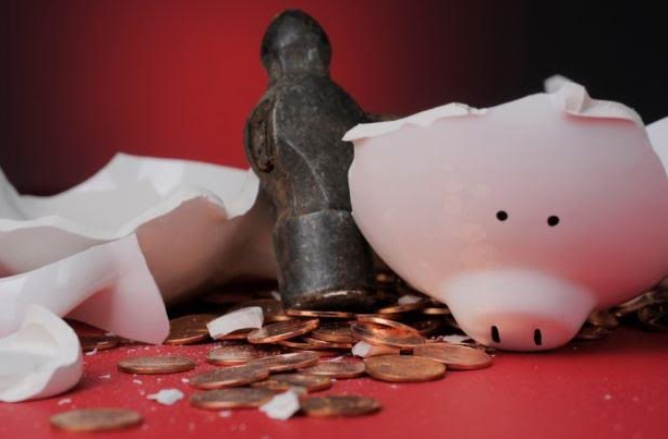By definition emergencies are unexpected and no one is immune to the unexpected. And you can’t afford to ignore the possibility that one day a sudden financial emergencies will happen to you. Unless you live a super boring life sooner or later, (no matter how well prepared you are) something will happen that you never saw coming, whether it’s an illness or an icy patch in the road, you need to expect the unexpected. Everyone’s financial situation is unique and complicated, but the two main elements you always need to keep in mind are your income and your expenses.
Financial Emergency Type 1: Income Emergencies

Financial Emergency Type 2: Expense Emergencies
Generally speaking, you have more control over your expenses on a day to day basis than you do over your income. This means that most expense “emergencies” can be averted by just not buying whatever it is that happens to be threatening your bank account. Considering what your real necessities are, and which things you can go without, is a continually useful mental exercise. There are some legitimate unforeseen expenses, however. These mostly tend to revolve around medical care, housing, and transportation. If your arm breaks, your basement floods, or your car breaks down, you might not have much choice about the money you spend.
Basic Emergency Preparedness
There is no replacement for a rainy day fund. Money is the ultimate problem solver, and if you’re living paycheck to paycheck your ability to deal with the unexpected is greatly handicapped. If you do not have enough money in the bank to pay the bills over the course of a few months of unemployment, that should be your first concern. With a small cushion and some foresight, most types of financial emergencies can be weathered. But without a cushion, even small surprises can become major problems. Consider the typical emergency you get a tire puncture or your water heater gives up the ghost. If you have even a few hundred dollars in your emergency fund it isn’t really an emergency. Yes, it is inconvenient and it requires some time to get the problem fixed but it isn’t all that serious.
But now consider what happens if you don’t have the money and you don’t even have a credit card. You have to do one of two things:
- Get a payday loan
- Borrow money from Relatives (or friends)
If you go the payday loan route you have just entered a slippery slope because you will owe the cost of the emergency plus you owe a big chunk of interest and you still have your regular bills. So next week you have to borrow more and before you know it you are in big trouble.
If you can borrow interest free from parents or friends you are lucky but you still need to dig yourself out of the hole. Best to recognize that unexpected expenses are going to occur and be prepared in advance. First of all, you should have a credit card (that you pay off every month) so if an unexpected expense occurs you don’t have to go the loan-shark, ahem, I mean payday loan route.
Emergency Preparedness in Extreme Circumstances
For large expenses or long-term loss of income, your ability to deal with the situation may revolve around your ability to obtain credit. If you have a bad credit rating, or are already too deeply in debt, you may not be in a position to seek out a short-term cash infusion when you need it. You can greatly improve your ability to weather emergencies by avoiding debt and paying it off on time when you can’t avoid it.
The most important skill to help you with financial emergencies, a more important factor than any particular trick or action you can take, is the ability to plan ahead and anticipate what might go wrong in the future. By considering all the factors at work carefully, you will save yourself a lot of trouble when the worst happens.
Rachelle Wilber is a freelance writer living in the San Diego, California area. She graduated from San Diego State University with her Bachelor’s Degree in Journalism and Media Studies. She tries to find an interest in all topics and themes, which prompts her writing. When she isn’t on her porch writing in the sun, you can find her shopping, at the beach, or at the gym. Rachelle recommends visiting https://www.dfcu.com/sandy-quarry-bend-credit-union for more information about saving for the future. Follow her on Twitter and Facebook: @RachelleWilber; https://www.facebook.com/profile.php?id=100009221637700


Pingback: Financial Health – Shaping up Your Pocketbook — Optio Money